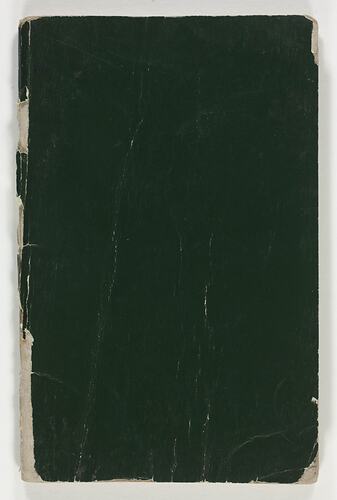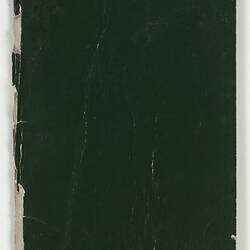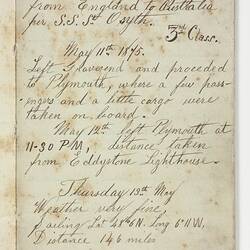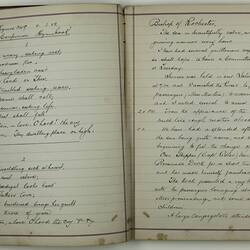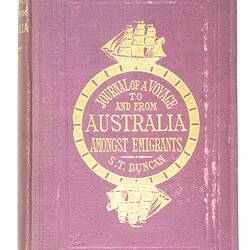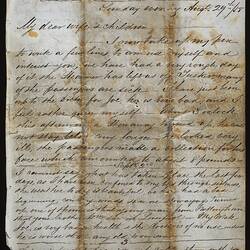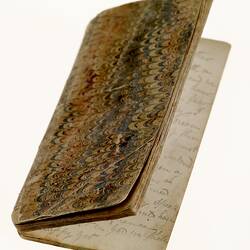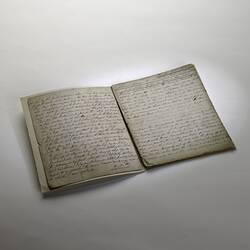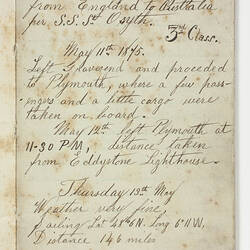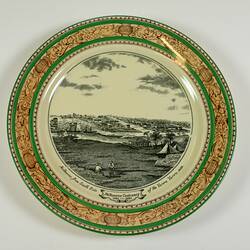Summary
Diary handwritten by Alfred Elder onboard the 'SS St Osyth', during his journey migrating to Melbourne from Scotland via England in 1875. His shipboard journal reads as a memorandum or testament, with its final passages addressed directly to his brother and sister, who remained in Britain.
Alfred was born in Burntisland, Fifeshire in Scotland on 19 October, 1848. His family lived in various locations in the south east of Scotland, with children born in Fife and in Edinburgh. In his diary, Alfred Elder writes that the long, narrow nature of the Yarra River reminds him of ' the Firth of Forth' at 'home'. The 1871 census shows Alfred and his sister Cassandra living in Edinburgh with their mother with Alfred as working as a grocer's porter. After the death of his mother in 1873, Alfred sailed for Australia from Gravesend in England on board the 'SS St Osyth' in 1875, arriving on the 27 June.
Alfred writes in his diary that immediately after his arrival, he lived with an aunt in Franklin Street, North Melbourne. He soon found employment, most likely as a gentleman's servant as is listed on his marriage certificate for the following year. On 19 October 1876, Alfred married Ann Jane Rooney, herself an immigrant from Tyrone, Ireland, working as a domestic servant, The Elders were married in Camberwell and lived in St. Kilda where Alfred was living at that time. They had seven children, three died before their parents. The family remained in St. Kilda with Alfred probably remaining in domestic service while Anne worked as a dressmaker. Alfred Elder died on 21 December 1912 in Coburg, Melbourne; Ann died in 1929, having moved to Geelong.
Physical Description
Small octavo notebook with green textured cardboard cover. Faint blue lined pages within, with extensive handwritten text in brown ink.
Significance
Journals such as these offer an invaluable insight into the migrant experience. They represent an important memory tool for the people who create them and a sense of the historical importance of their undertaking. They record the freshness of the personal voice at the time of the experience, rather than the retrospective recollections after many years past.
More Information
-
Collection Names
-
Collecting Areas
-
Acquisition Information
Purchase from Australian Book Auctions, Oct 2007
-
Author
-
Ship Depicted
-
Inscriptions
Handwritten, brown ink, first page: 'Memorandum of a voyage / from England to Australia / per S.S.S. Osyth. / May 11th 1875. / Left Gravesend and proceeded ...' and extensive further text.
-
Classification
-
Category
-
Discipline
-
Type of item
-
Overall Dimensions - Closed
105 mm (Width), 8 mm (Depth), 160 mm (Height)
-
Keywords
Diaries, Immigrant Voyages, Immigration, Journal Writing, Shipping, Shipping Industry, Station Pier, Scottish Immigration, British Immigration, Shipboard Travel, Domestic Work
